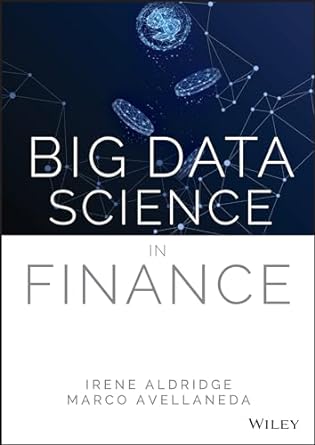AI Needs Big Data
Unlocking the Potential of AI: The Power of Big Data in Finance
Please note the blog posts on IreneAldridge.com may contain sponsored or promotional content. To sponsor or promote content on irenealdridge.com, please click here.
A couple of decades ago, sci-fi movies imagined prototypes of human-like robots, or cyborgs, endowed with artificial intelligence (AI): fully aware and functioning (“The Terminator”) and even sometimes feeling (“Bladerunner”). Today, with the advances and popularity of ChatGPT, such reality does not seem to be far-fetched – we can imagine a fully eloquent robot coaching us on the best entrepreneurship techniques – oh wait, ChatGPT already does that with great success. Or a robot that runs, jumps, dances and, sigh, engages in combat – uhm, cue in the Boston Dynamics videos for a proof of the success in that field. A childcare robot? That is still something to be seen. Still, we have an explosion of interest in AI in all areas of our lives: graphic design, consumer engagement, and, of course, Finance. I feel fortunate to teach AI at Cornell Financial Engineering Manhattan program to a full highly-attentive class of super interested students. While we discuss multiple techniques for enabling AI processes, the common theme remains the same: excellent AI requires enormous amounts of data to make quality inferences.
According to Prof. Bhaskar Krishnamachari of University of Southern California, AI is a collection of algorithms, software, hardware that allow computers to perform traditionally human tasks, such as:
- Perceiving and understanding the world around us (vision, speech, object recognition)
- Communicating in natural language
- Reasoning and logical deductions
- Making plans and decisions and navigating the world in autonomous fashion
- Coordinating actions with other machines and humans
All of the actions above rely first and foremost on data. For example, to perceive the world around us, we need to observe it. Whether the observations involve images or sounds, the data needs to be captured and stored, before it can be processed in a timely manner to deliver actionable outputs. Communication in natural language mastered by ChatGPT requires an abundant “back-end” of examples to draw on, so that the computer models can create new language samples that align with our established syntaxes. Reasoning and logical deductions also can only happen in the realm of observations, and so is decision-making and any coordinating actions.
And the data available to us is enormous. ChatGPT successfully scrapes the Internet to establish a “knowledge paradigm” from which it then samples to create its advice and much more. While some refer to ChatGPT as a “stochastic parrot”, a randomization engine that aggregates and reconstructs in a novel way information harvested from the Internet, the value of summarizing the Internet with a focus on a specific question is undeniable. In Finance, we have barely scratched the surface of the various financial and non-financial data sources and their applicability to pricing, executing, risk managing and so much more for so many financial instruments. The opportunities are truly endless, and they begin with data.
Irene Aldridge is a co-author of “Big Data Science in Finance” (with Marco Avellaneda, 2021) and CEO of AbleMarkets, a company that leverages AI to deliver financial practitioners near-real-time market insights based on news, real-time quote, public announcements and other data sources.
More Real-Time Research

